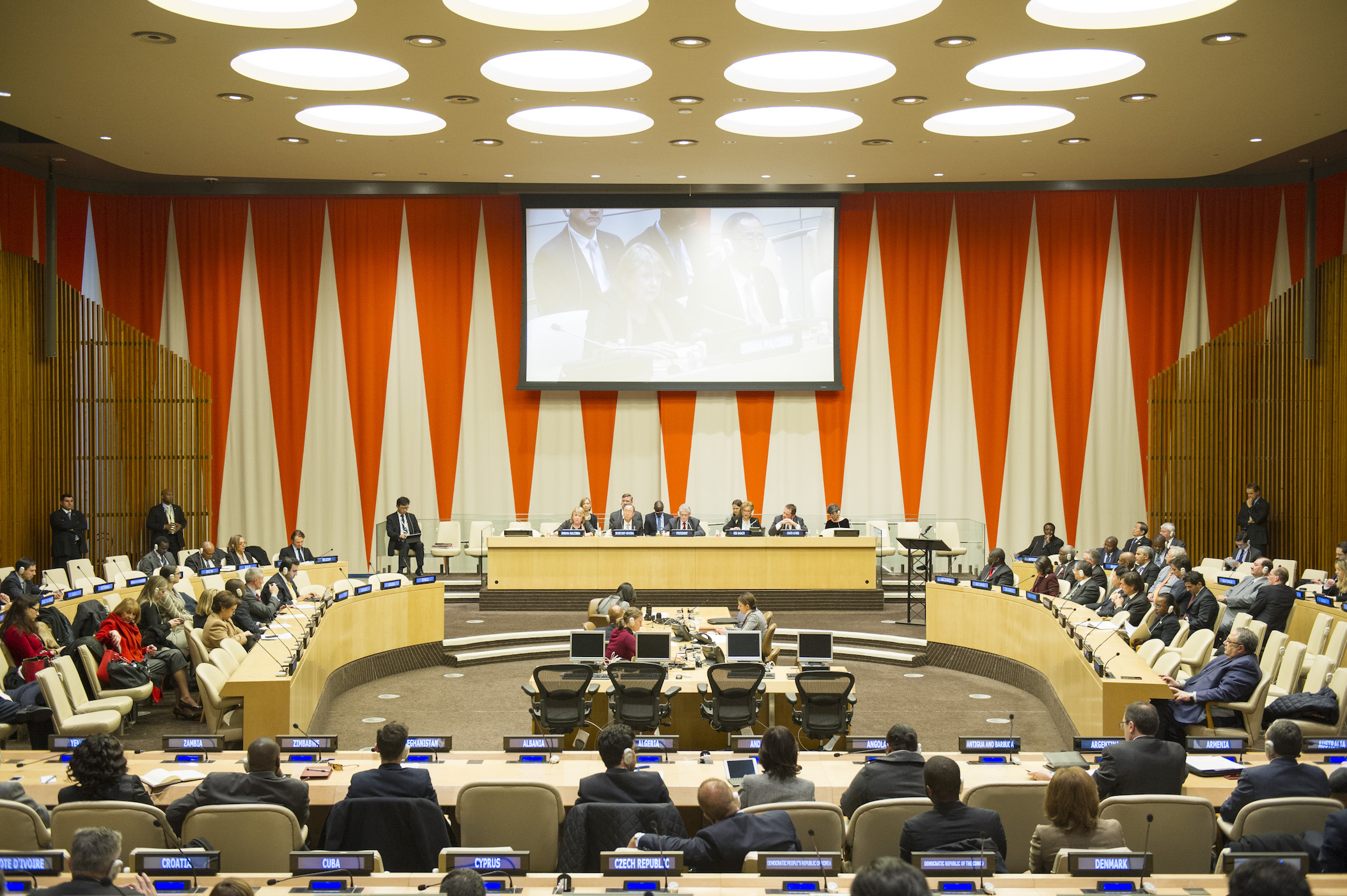
Demystifying the UN Budget

Money and personnel. These are the two basic resources of almost any organization, and the United Nations is no exception. The UN budget is one of the most misunderstood parts of the UN system. This is partially because there are actually multiple, independent budgets in the UN system that are each paid for in a different way. We’ll cover each of them in this post. The UN budget is also one of the most controversial parts of the UN system. Member States periodically threaten to withhold their contributions to advance their policy agenda or encourage management reform. Members have even withdrawn from UN specialized agencies in part because of how the budget is allocated.
At the United Nations, there are two different types of financial contributions: assessed contributions and voluntary contributions. Assessed contributions are the regular, annual funds that Member States are required to provide. Voluntary contributions are just that: additional funds that Member States contribute above and beyond their assessed contributions. Voluntary contributions typically are designated for a particular UN program or activity.
Assessed Contributions
Assessed contributions support the regular UN program budget, peacekeeping operations, international tribunals and the capital master plan (which supports renovations at UN headquarters). Every three years, the General Assembly sets an assessment level, defining what percentage of the total budget each State is responsible for paying. The highest assessment is paid by the United States: 22 percent. Numerous least developed countries pay the lowest level of 0.001 percent. Prior to 2001, the regular assessment and peacekeeping assessments were set at different levels. Since 2001, both assessments have been set at the same level.
Assessment is not the whole process, however; someone still has to create a budget. That process begins with the Advisory Committee on Administrative and Budgetary Questions (ACABQ), a sixteen-member body composed of Member State representatives that reviews materials from the Secretariat and provides recommendations on the UN budget. The ACABQ’s report goes to the General Assembly’s Fifth Committee, which sets the final budget, typically based on the ACABQ’s recommendations. Regular budgets are set biennially, while peacekeeping budgets are set annually.
Voluntary Contributions
Voluntary contributions (or extrabudgetary contributions) are about what they sound like: contributions made by Member States and other organizations. They are not required, though many UN programs depend heavily or entirely on voluntary contributions. Member States have a great degree of flexibility in how voluntary contributions are used, and they can be either restricted or unrestricted. Unrestricted contributions designate a program or agency (like the United Nations Population Fund) that is allowed to decide what activities that money is spent on. Restricted contributions fund a program or activity identified and agreed upon by the Secretariat and the contributor (e.g., a specific literacy program in Pakistan).
Voluntary contributions are a major source of funding for UN development and humanitarian assistance programs. UNICEF, the UN Development Programme, the World Food Program and the United Nations Population Fund all depend almost entirely on voluntary contributions. Others, like the Office of the UN High Commissioner for Refugees, receive more in voluntary contributions than they do in assessed contributions.
Voluntary contributions allow the UN agencies, programs and funds to do significantly more than the regular budget would permit. But there are some downsides. Voluntary contributions are irregular. Contributions can rise or recede on a yearly basis, making long-term planning more difficult. Some Member States make multi-year funding commitments, but not all do. Voluntary contributions also give financial contributors significantly more influence over the direction of a program.
Specialized Agencies
The United Nations regular budget only covers the Secretariat and programs managed by the Secretariat. It does not provide funding for any of the specialized agencies. Each of the specialized agencies has its own budget process that looks similar to the regular UN process. Assessments are set, a committee of Member States develops and approves an agenda, and Member States pay their assessments. Member States also often make voluntary contributions to specialized agencies to support specific work by those agencies.
The UN Budget and Model UN
One of the most common problems for Model UN participants is funding new programs that they wish to create. In a realistic simulation of the United Nations, there are typically only two paths: (1) create a program that requires no additional funds or staff time from the Secretariat; or (2) create a program that relies entirely on voluntary contributions. Voluntary contributions may seem like an easy solution to implement an idea, that isn’t wholly true. Many of the best-respected UN programs are funded through voluntary contributions, but the bulk of programs relying on voluntary contributions receive minimal funding from only a handful of countries–usually less than $5million per year.
There is one exception: resolutions on peacekeeping operations can be approved by the Security Council before the General Assembly reviews and approves a budget for the operation. Any other substantial changes to the UN program and budget need to be approved by the Fifth Committee, which is typically outside the scope of a Model UN simulation.
Keep Up With The Accords
More to read
The AMUN Accords is a premier resource for fact-based Model United Nations simulations. We are always looking for new contributors. Want to write for the AMUN Accords? Check out out the submission guidelines and then get in touch!




